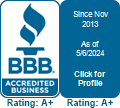What you need to know…
By Dean Sherry, President, Duke Property Management
Let’s say you are a real estate owner/investor and have hired a property management company to manage your apartment buildings. You sign a management contract and the company opens a regular business checking account with their bank. They begin managing your property and collecting rents and paying your bills.
However, did you know that by not setting up a trust fund account to manage your money, the property management company could be liable for not complying with the California Bureau of Real Estate (CalBRE) rules and regulations? In the eyes of the CalBRE (formerly known as the DRE), ignorance is not bliss and the consequences of an audit could be quite severe. Therefore, it’s important to know the legal guidelines to understanding trust fund accounting. It can only help make your life easier.
In terms of property management, trust fund accounting is predicated on the notion that the management company has created an agency relationship with a third party through a management contract and therefore has a legally-bound fiduciary duty to the owner(s) of the funds they are managing.
In other words, they are essentially holding the money from your properties “in trust for” you and thus must handle the money according to trust fund accounting standards. For the property management firm, this is much different than most other real estate transactions where money is held and managed by an independent escrow company. The management company takes this function upon themselves and they are fully responsible and accountable for your funds. This is why management companies need to practice trust fund accounting. Below are the major points you should know about trust fund accounting.
Setting Up a Bank Account
In order to do trust fund accounting, the management company must first set up a trust fund account with a bank. This account is usually used as the “operating account” into which rent collections are deposited, funds held and from which payments and distributions are made for, among other things, services, maintenance and repairs, loan payments, payment of taxes and distribution to owners. Many owners/investors should also have another type of trust account for their tenant’s security deposits and reserves. It’s critical to note that it’s legal to have one trust account to manage several properties held by the same owners or different owners, but I generally consider this a bad business practice due to the complexity of keeping accurate records. It’s best to have a trust account for each property, but it all depends on how you, the owner, want the management company to set it up.
However, none of the trust fund accounts can be commingled with the management company’s corporate accounts and they must be non-interest bearing accounts. Furthermore, although it’s much easier for record keeping and reporting to set up separate accounts, the most important thing is that the management company clearly identifies who owns what account and keeps accurate records for each property separately.
Many of the larger banks have some sort of real estate treasury management division and are well-versed in the legal requirements of trust fund accounting, per CalBRE. However, there is a caveat; some banks do not provide this type of “in trust for” accounts and the local branch agent might tell your management company they just need a DBA account and a trust agreement to get started. This is wrong. The company will need, in the very least, their legal business documents and a signed management agreement. It all starts with choosing a bank that provides trust fund banking and who can assign your property management firm a personal customer service representative that is knowledgeable about this type of banking.
Record Keeping / Software Reporting
As I had previously mentioned, it’s vital to keep separate and accurate records for each property under management, even if there is only one trust account. All that data entry can be cumbersome and costly for the management firm. Using technology to automate this process makes it much easier for the company to create and enjoy a streamlined process of bookkeeping and accounting, which better serves the owner.
Most commercial management software solutions have trust fund accounting systems and can easily integrate with the management company’s online banking system. For example, for account receivables, many companies use an online payment system like PayLease to electronically collect rents. The PayLease transactions can then be automatically synced with the management company’s bank, which in turn, can also integrate with their property management software. The end result is that it saves them time doing data entry and money on payroll and greatly increases the accuracy of the financial reports. They can then focus on providing their clients with better customer service.
As long as the management software is compliant with trust fund accounting, the management system the firm uses will enable them to meet the CalBRE reporting and reconciliation requirements, including, but not limited to:
- Ownership/Property Reporting
- Tenant Info / Rent Roll
- General Ledger/Transaction Reporting
- Balance Sheet & Financial Statements
- Bank Statements & Reconciliation Report
Most property management companies are well aware of the requirements of trust fund accounting. However, there are always some companies that aren’t managing your funds the way they’re supposed to. If you care about your real estate investment(s), don’t let your management company expose themselves to noncompliance accounting practices. You don’t want the CalBRE auditing your management company’s accounting and thereby risk a state or federal audit of your own funds. It’s just not worth it.
For more information, please refer to:
http://www.dre.ca.gov/files/pdf/OpeningTrustAccount.pdf
http://www.dre.ca.gov/files/pdf/re13.pdf
http://www.dre.ca.gov/files/pdf/refbook/ref22.pdf
View the original Article here

















